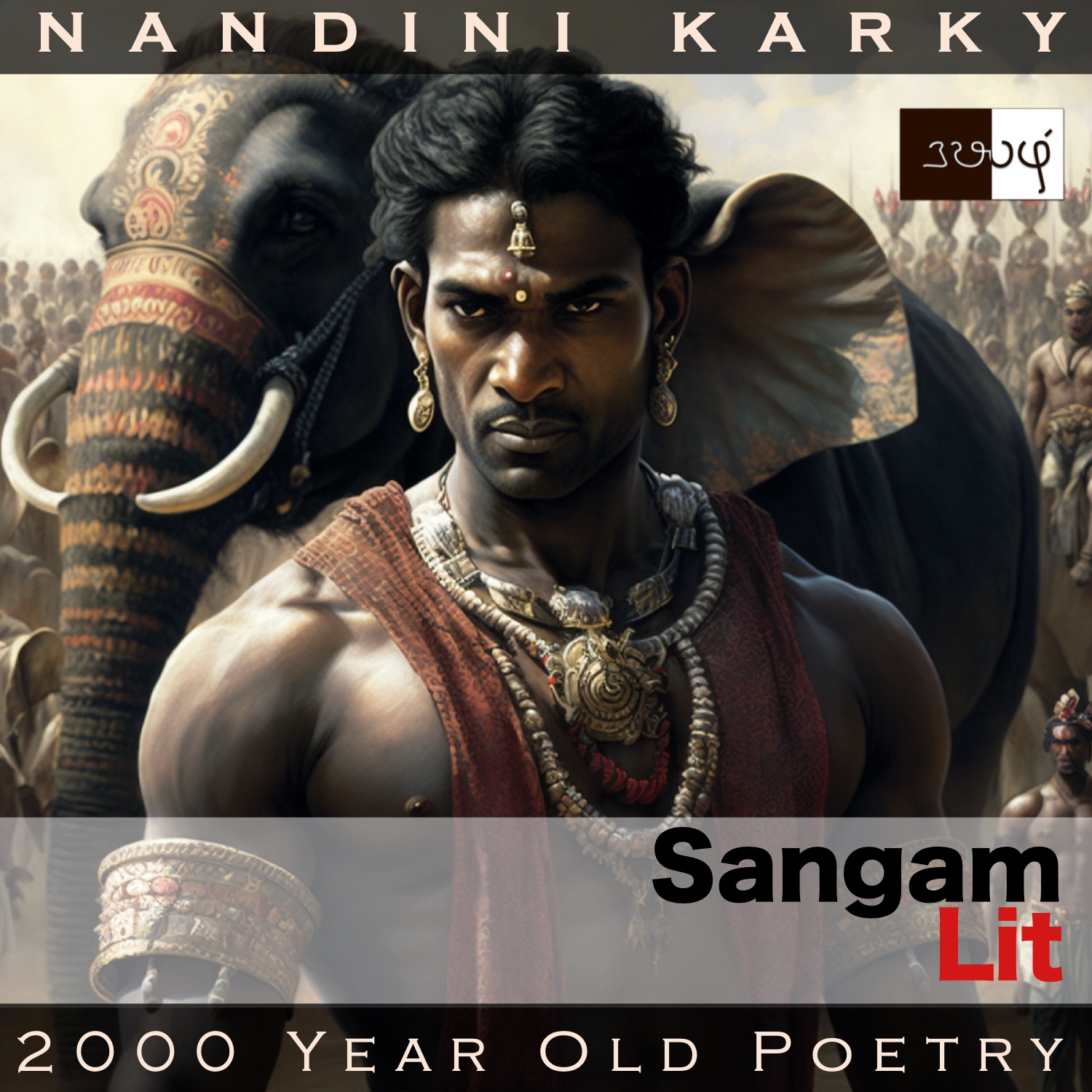Podcast: Play in new window | Download
Subscribe: Apple Podcasts | Spotify | Amazon Music | Android | iHeartRadio | Email | TuneIn | RSS | More
In this episode, we meet a dashing prince, as depicted in Sangam Literary work, Puranaanooru 96, penned about the Velir King Athiyamaan Nedumaan Anji’s son Pokuttu Ezhini by the poet Avvaiyaar. The verse is situated in the category of ‘Paadaan Thinai’ or ‘King’s praise’ and talks about the dangers in this young man’s life.

அலர் பூந் தும்பை அம் பகட்டு மார்பின்,
திரண்டு நீடு தடக்கை, என்னை இளையோற்கு
இரண்டு எழுந்தனவால், பகையே: ஒன்றே,
பூப் போல் உண்கண் பசந்து, தோள் நுணுகி,
நோக்கிய மகளிர்ப் பிணித்தன்று; ஒன்றே,
‘விழவின்றுஆயினும், படு பதம் பிழையாது,
மை ஊன் மொசித்த ஒக்கலொடு, துறை நீர்க்
கைமான் கொள்ளுமோ?’ என,
உறையுள் முனியும், அவன் செல்லும் ஊரே.
After hearing about the father all this while, now we get to meet the son. The poet’s words can be translated as follows:
“Wearing fully-bloomed ‘thumbai’ flowers on his wide chest, having thick and long arms, the young one of my king has two enemies rising up before him. One is the disease he causes in women he glances at, making pallor streak their flower-like, kohl-streaked eyes and shrink their shoulders. The other one is the dislike of people in the towns he stays, who say, ‘Even though it’s not the time for festivals, along with his escorts, he feasts on cooked rice and goat flesh. Would his war elephants take to the drinking water shores too?’”
Let’s explore the details in this verse. The poet starts with a description of the prince describing him as one who wears ‘thumbai’ flowers on his broad chest. Then she talks about his long and muscular arms, the marker of a man’s beauty then. Turning from who the royal is, the poet talks about who his enemies are. The first one is the affliction he causes in women he meets, who seem to be struck with pallor at the sight of him. Detailing the other one as the dislike in the hearts of some people, she points out to who they are, through their words. These are people in the towns this prince lays siege too, and where he demands meat and cooked rice although it’s not the festive season. The poet concludes with the words about how those people fume with hatred, wondering whether his war elephants were going to ruin their drinking water shores as well.
While the latter sounds like an indirect statement to demonstrate the skill of this prince in commanding armies and fighting wars, the first statement about his appearance making maiden smitten with him reads like an ad extolling the prince’s physical features and attractiveness. Interesting how one of those enemies described by the poet is because of love and the other is because of hate. With that, the poet sketches a royal personality in Sangam times for the eyes of the future!




Share your thoughts...